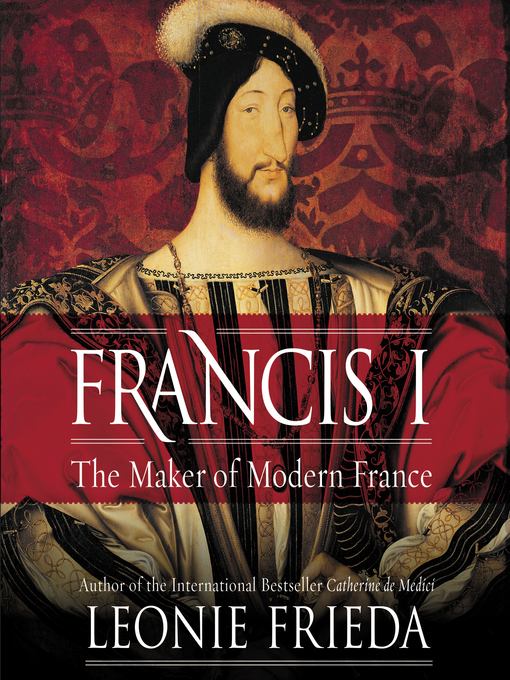
Francis I
The Maker of Modern France
کتاب های مرتبط
- اطلاعات
- نقد و بررسی
- دیدگاه کاربران
نقد و بررسی

Most Americans are not so familiar with French history; if they know Francis I at all, it's as the patron of Leonardo da Vinci. But this audiobook shows how he deliberately moved France into the Renaissance, setting it on the road to modernity. In an era of great leaders--his contemporaries were Henry VIII of England and Charles V of the Holy Roman Empire--Francis held his own. Historian Leonie Frieda does not conceal his flaws, but narrator Carole Boyd evokes compassion for the struggles even autocrats must face. She keeps the story lively and active, even though we know, for example, that Francis and his sons will, eventually, be released from imprisonment. D.M.H. � AudioFile 2018, Portland, Maine

March 15, 2018
Frieda (Catherine de Medici) aims to rehabilitate the image of Francis I, king of France from 1515 to 1547, whom the author claims deserves to be known as the "Maker of Modern Europe." While honest in highlighting the king's obvious flaws (womanizing foremost among them), the book does not quite live up to the promises made in its introduction, which unfortunately is its only analytical section. What follows is a chronological and fairly standard accounting of the king's reign and accomplishments, overwhelmingly reliant on previously published sources. We learn of the king's fascination with Renaissance philosophy, art, and architecture; military campaigns in Italy; and relationships with rivals such as Henry VIII of England and Charles V, Holy Roman Emperor. Of interest is Francis's role in acquiring Leonardo da Vinci's Mona Lisa for France. Readers interested in the lives of royals past will enjoy the rich descriptions of funerals, coronations, and marriage ceremonies, among many other details. Yet, the volume would have been stronger had it traced the historiographical changes in Francis's reputation. Furthermore, the absence of a conclusion weakens the narrative, as does the omission of the king's involvement in the contemporary challenges of religious reformation and overseas exploration. VERDICT For general readers interested in 16th-century Europe, French history, and royal biographies.--Marie M. Mullaney, Caldwell Coll., NJ
Copyright 2018 Library Journal, LLC Used with permission.

February 1, 2018
Thoroughgoing biography of the French ruler who allied with Islam in an effort to resist his Habsburg neighbors."If ever there were a king who warrants rehabilitation, it is Francis." So writes Frieda (The Deadly Sisterhood: A Story of Women, Power, and Intrigue in the Italian Renaissance, 1427-1527, 2013, etc.), who makes a solid effort here. Allowing that Francis I was a "deeply flawed figure" who was committed to the principle of absolutist rule and violently suppressed dissenting religionists, the author lends him humanity by examining his scholarly and artistic interests. As she shows, Francis was a man of letters who supported the work of Andrea del Sarto, Leonardo da Vinci, and other artists even if he sometimes experienced disappointment at their hands--Leonardo never produced the great work of art while residing in Paris that Francis hoped for, though he did leave the Mona Lisa, which explains why it's housed in the Louvre, which Francis had restored. He also took considerable effort to learn the many and diverse regions that made up his domain. Events placed him in contention with the neighboring powers of Europe, including the Habsburgs of Austria and the pope. While Francis "mired himself in a succession of skirmishes and conflicts on too many fronts," he took some interesting and daring risks, including forging a short-lived alliance with Suleiman the Magnificent, the leader of the Ottoman Empire, leading to the arrival of a "large and potentially dangerous Muslim population" within France; another anti-Italian alliance with the pirate king Barbarossa led to the ransacking of the French fleet. For all his diplomatic and military difficulties and problems with orderly succession, Francis was also a patron of explorers who soon extended France's empire into the Americas, Africa, and Asia.Though a figure of major importance, Francis has been forgotten against better known contemporaries such as England's Henry VIII. Frieda's work helps restore him to history.
COPYRIGHT(2018) Kirkus Reviews, ALL RIGHTS RESERVED.

























دیدگاه کاربران